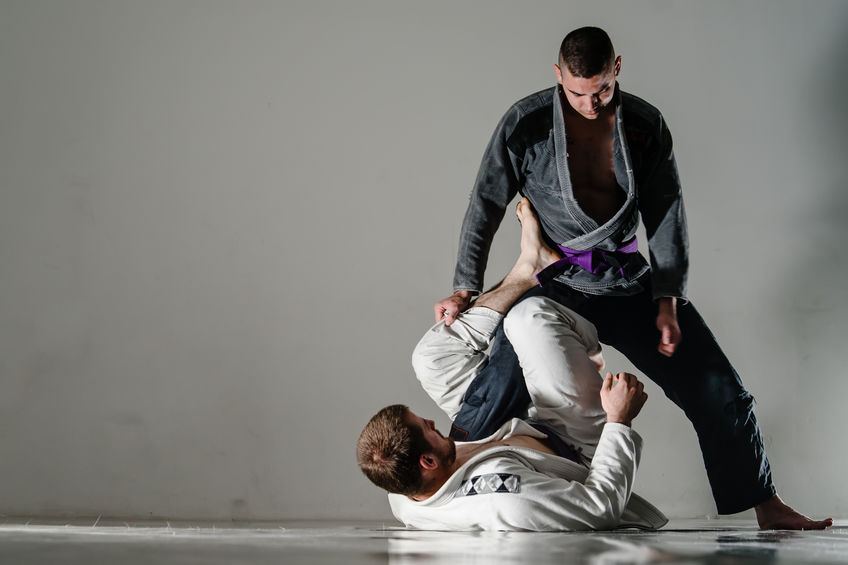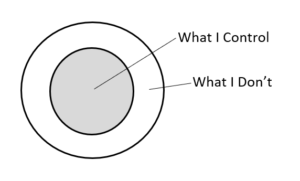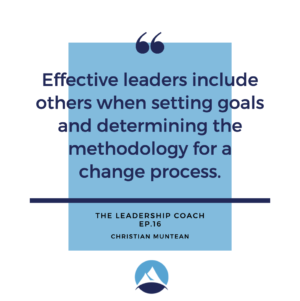In a Crisis, This One Focus Proves To Be The Most Important

 This current crisis has many leaders scrambling. Scrambling to keep up with changes, to protect and retain their employees, manage cash flow, to plan for the future and somehow get and maintain a grip on some kind of control.
This current crisis has many leaders scrambling. Scrambling to keep up with changes, to protect and retain their employees, manage cash flow, to plan for the future and somehow get and maintain a grip on some kind of control.
I practice Brazilian Jiu-Jitsu. If you aren’t familiar, it is a martial art that focuses heavily on grappling and submissions. Like wrestling. Except we hug harder.
When I first started to learn, my tendency was to grab an opponent and hold on for dear life, doing whatever I could to keep him from advancing his position.
I can recall getting a tight headlock on an instructor and thinking maybe I was a little better then they expected. Only to have him slip away and casually submit me.
After the match he said something encouraging like, “That headlock probably felt good to you. But it didn’t help. It pulled all of my weight on you so you couldn’t breathe and had to support both of us. Also, it made your arms vulnerable to arm locks. Stop fighting so hard and let go of bad positions.”
The problem was, I couldn’t tell the difference between good and bad positions. I didn’t know what I could and couldn’t control.

Focus On What You Can Control:
In practice, it has taken time to discern the difference between what I can and can’t control with an opponent. I still have a lot to learn.
In life and leadership, that’s been true as well. But I have learned that the more I focus only on what I can control, the more influence and impact I have.
Not only that, I waste less energy fighting something I can’t do anything about. And I don’t take on unnecessary pressures.
In his book, Seven Habits of Highly Effective People, Stephen Covey describes this as part of the First Habit: Be Proactive.
He defines proactive as: “Being responsible for our own lives…our behavior is a function of our decisions, not our conditions.”
By doing this, we actually begin to expand what we can control. We expand our influence.
When we don’t do this, we shrink our control.
In a crisis, there are limits on what we can do. Instead of fixating on and being frustrated about forces outside of our control – if we focus on what we can do, we actually begin to expand what we have control over.
Here is a simple example: In this current situation, some leaders have become very externally focused. When they read the news, there is so much that they can’t control, it seems so big, so overwhelming, so dependent on the decisions of others, it’s easy just to quit. And many are. They are just shutting down shop, hunkering down, and hoping this blows over.
However, others are telling me that they are intentionally limiting their exposure to the news. They are very focused on what they can control. They are working with their employees to find safe ways to stay working. They are engaging with their customers to explore options. They are renegotiating payments and terms with lenders and suppliers to keep their cash flow manageable.
Here’s what will happen. (This happens in every economic crisis): Most of the organizations that strictly focus on what they can control come out on the other side stronger and better positioned before they went into the crisis. Sometimes they need to rebuild a little – but it doesn’t take them long.
The companies that focused on what they couldn’t control and hoped external decisions or circumstances would either pass them by or save them either don’t emerge at all or come out hurting. It has everything to do with where they choose to focus.
Takeaways:
- Discern what you can and cannot control.
- Rigorously focus your energy and efforts on what you can control.
Let Go Of What You Can’t Control:
When facing a tough opponent, it can be easy to mistake effort for control. Head locking my instructor felt like I was doing something but he knew how to get out of the headlock. I was just making it harder for myself and wearing myself out. Not only that, by focusing on something I couldn’t control, I wasn’t putting attention and energy on what I could.
In Brazilian Jiu-Jitsu, the first attempt to throw or submit an opponent is not likely to be successful. In fact, the best practitioners are great at being able to quickly chain together their options. They are nimble in their thinking. They will fully commit to each choice they make while it seems like it will work but they also will quickly abandon that choice when it won’t work and shift to an alternative.
As leaders, we have to be able to recognize when situations have changed. Perhaps we used to be able to control something but we can’t any longer. Or we discover we never actually had as much control or influence on something as we thought. Whatever it is, we have to quickly recognize when our efforts and energies are no longer producing value. And when we do, we need to pivot and transition to something new.
Stay Nimble:
In difficult situations, it’s important to stay nimble and creative. Focus on what you can do and what will bring value. Let go of the rest.
In the original version of the serenity prayer, written by Reinhold Neibuhr, he placed the courage to act first. I think that is relevant now:
Father, give us courage to change what must be altered, serenity to accept what cannot be helped, and the insight to know the one from the other. – Reinhold Neibuhr
Take good care,
Christian
Are you curious about the value of your company? Try my free tool: The Value Builder System
The Value Builder System™ is a 13-minute online questionnaire that evaluates your business on the eight factors that contribute more to its attractiveness and value. These factors are scored on a scale of 1-100. Businesses that score over 80 are likely to command 70%-100% higher value than others. Click here to learn more or get your free Value Builder Score.
Would you like my help for yourself, your team or board to get a clear vision of 2020? Don’t leave it to chance. Give me a call 907-522-7200 or e-mail me.
In my podcast, THE LEADERSHIP COACH, we explore effective, high impact and enjoyable leadership. We talk about personal development and the attributes that all effective leaders possess. I interview other leadership experts who share their knowledge and tips to help you build the confidence to lead and learn the habits of good decision-making.
Episode #16 is available now: Make it Easy(er) to Lead Change.

Opportunities
Did someone send you this article? You can receive it, free, directly from me each week. Click here to sign up. You can unsubscribe at any time. I won’t feel too hurt.
Free Resource: How To Accomplish More Without Doing More is a workbook I created to walk leaders through a process of helping you own your calendar, liberate your time, and still get more done. Download it for free!
Executive and Leadership Coaching: Do you feel overwhelmed? Are you not getting the results you expect from the effort you are putting in? Do you find yourself facing similar challenges time and time again? Would you like to change specific ways of relating or reacting? If you would like to experience predictable, measurable growth Contact me.
Profitable Exit Strategy Workshop: Are you a business owner or partner? Are you over 55? Are you starting to think about exiting your business or active management in the next 3-5 years?
- Are you curious about what your business might be worth?
- Would you like to discover the specific steps you need to take to increase its value and become highly attractive to a buyer?
- Are you planning on handing it over to family or employees and you want to ensure long-term success?
If so, contact me now
Categories
Get Christian’s Newest Book: Train to Lead

Download my free 10-page eBook:
How To Accomplish More Without Doing More:
Eight Proven Strategies To Change Your Life
Discover how to save eight hours during your workweek-even if you're too busy to even think about it. The resource every maxed out executive needs.